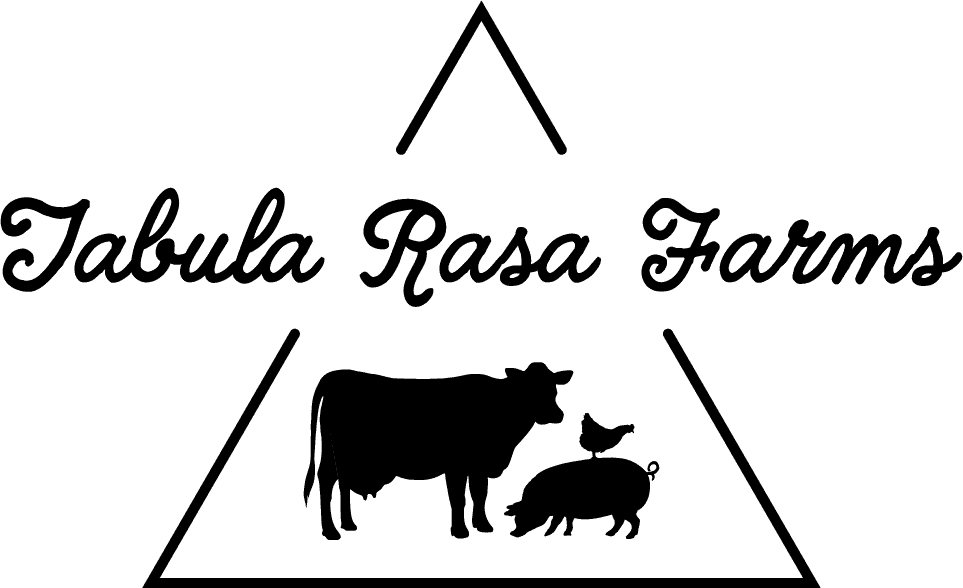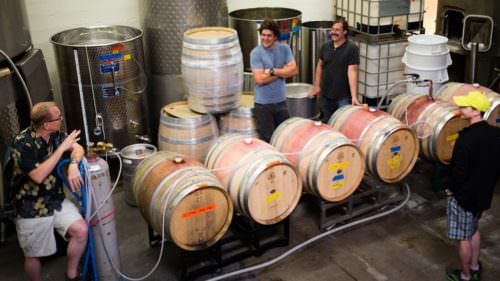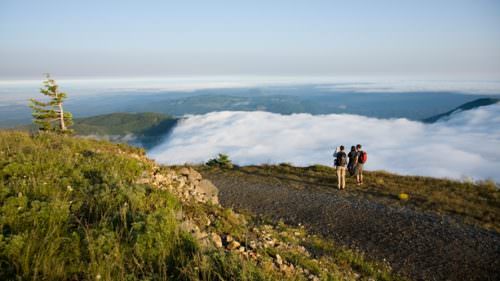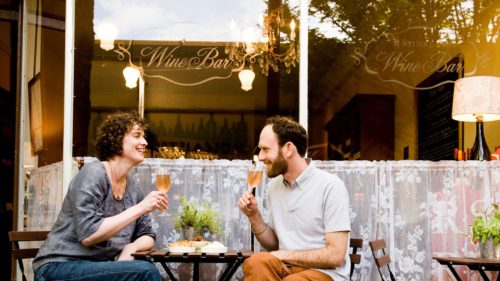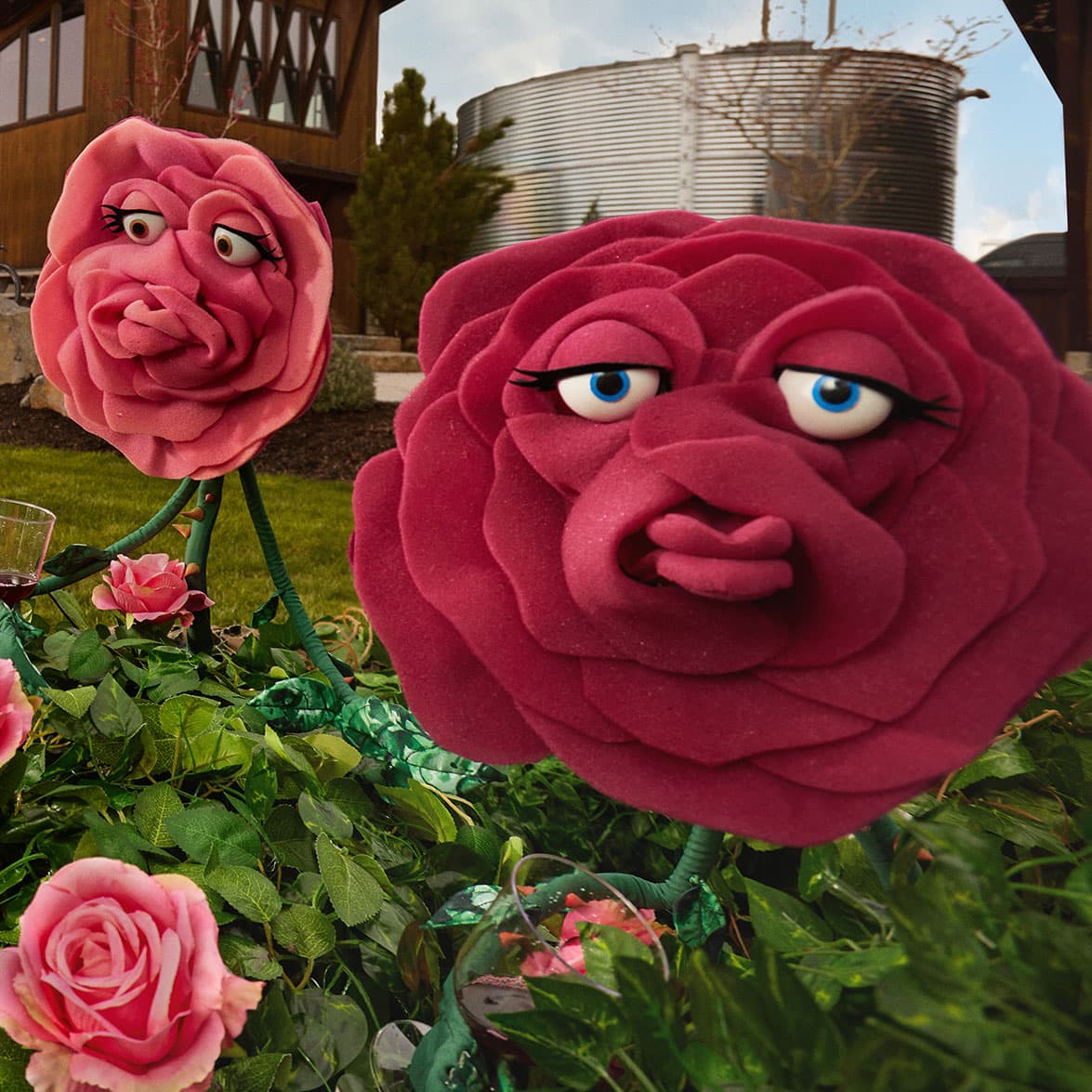Every wine enthusiast knows great taste starts with the soil, but terroir isn’t just for wine. Tucked among the vineyards of the Willamette Valley’s Yamhill-Carlton AVA, Brenda Smola-Foti is sharing a new vision for regenerative agriculture in Oregon at Tabula Rasa Farms. It started with the idea of raising livestock sustainably, but now it’s even more holistic — inviting visitors onto the farm to pet animals, stay overnight and buy products that pair perfectly with local wines. She also has plans for a nearby restaurant that will serve the farm’s pasture-raised meats.
“I was an armchair environmentalist, but it just wasn’t enough,” she says of her roots in Oklahoma, the daughter of a rancher. “Even though I was a full-time professional artist, that seed of having a little slice of land, it just sprung.” Here’s the story of a longtime artist returning to her roots in farming, charting her own course with sustainability as her guide.
You can learn more and immerse yourself in farm life by taking a farm tour, shopping at the farm stand or even booking a stay at the luxury Farmhouse at Tabula Rasa Farms on-site.
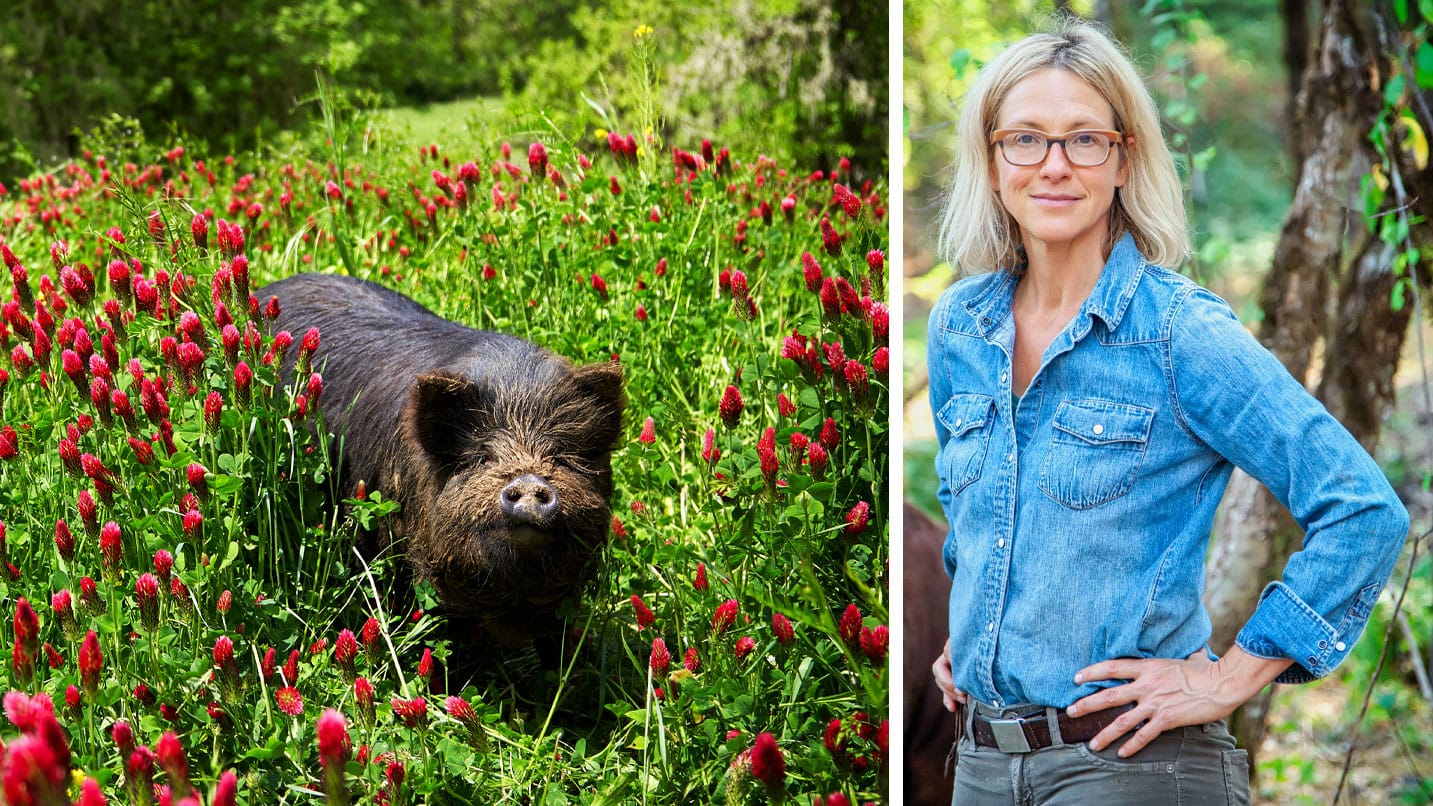
A Return to Her Agricultural Heritage
Visitors to Tabula Rasa Farms today will see paddocks that are home to a rotating cast: Woolly cattle graze the fields; sturdy black hogs wallow and forage for wild apples amidst the trees; and a troop of laying hens follows behind them, scratching and pecking in the grasses.
Since 2008 Smola-Foti and her team have been working to rehabilitate an overgrazed 33-acre former horse farm, implementing farming methods that cultivate the landscape’s ecosystem instead of stripping it. With a Latin name that means clean slate, Tabula Rasa raises pastured livestock through regenerative agricultural practices that build soil and aid water retention.
It’s been a long journey to get here. Growing up in the Midwest, Smola-Foti initially fled agriculture: “I couldn’t get far enough away from it,” she says. She moved to Los Angeles and then New York, where she worked in advertising and fashion design. For 13 years she was a painter, showing her work nationwide. She never imagined herself returning to farming until she reconnected with the land while living on 5 acres in Long Island.
As a counterpoint to large-scale industrial farming, Smola-Foti chose to adopt the model of multispecies rotational grazing. Cattle that graze on abundant pastures actually strengthen the landscape, pruning plants rather than destroying them, she explains. Natural foraging behavior of pigs and chickens disperses manure that feeds the plants and builds the topsoil, and the entire habitat becomes more robust. Rainfall can permeate ground rich in organic matter rather than running off and causing erosion. Smola-Foti began to nourish a vision for a hobby farm to try the model herself. “I really came full circle,” she says.
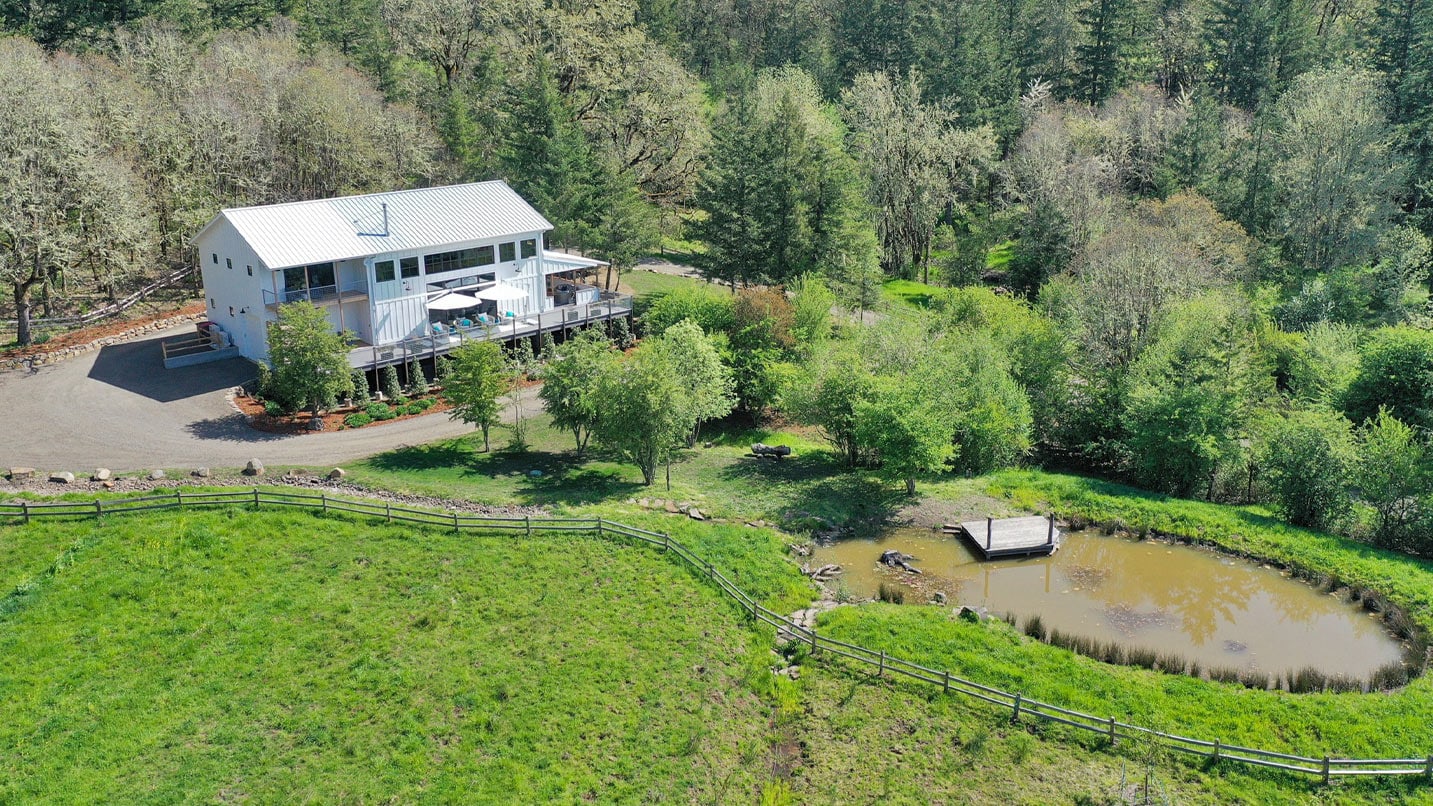
Building a Farm Community
Hungry to return to the West Coast, in 2008 Smola-Foti bought 23 acres a few miles west of Carlton. The first few years required extensive rehabilitation of the landscape. “You couldn’t even walk in the forest. It was like a jungle,” she says. Livestock helped clear it; she bought four Irish Dexter cows and two calves, one American Guinea Hog boar and two sows. “I didn’t even know much about pigs, but I just fell in love with this breed because they’re smaller and so friendly.”
Now the farm comprises 400 acres of sloping paddocks and woods, and the herd has grown substantially. A full-time farm crew cares for the animals, moving them from pasture to pasture, and donkeys act as guards for the laying hens. With her farm vision up and running, Smola-Foti is focusing on what’s next.
The key to any sustainable agriculture system is integration, so her new focus is connecting what the farm does with the surrounding communities. “I really wanted a place where people can come get a taste from the producers here in the Willamette Valley, because there’s more than just wine. It’s a very special agricultural region,” she says.
Though her products pair nicely with the nearby wine scene, the farm stand at Tabula Rasa stocks locally produced honey, hazelnuts, cider and skincare products from Rough Cut Soap Company. In nearby Carlton, once a sleepy agricultural town, tasting rooms and new restaurants abound. Smola-Foti says she loves visiting local vineyards for wine tasting, the French bistro menu at Cuvee, and Park & Main for pizza and housemade ice cream.
McMinnville is also a favorite destination, particularly the health-focused options at Local Flow and longstanding Nick’s Italian Cafe. Soon Tabula Rasa will have its own home in the McMinnville restaurant scene. Along with her husband, Frank Foti, she has hired Portland chef Brett Uniss to open a farm-forward restaurant called Humble Spirit.
With these new endeavors, Smola-Foti hopes to offer the opportunity for people to learn about and experience sustainable agriculture firsthand. “When we sell food to someone or give them a tour, they suddenly feel good about where their meat comes from, glad that someone out there is doing something good for the environment,” she says. “I like to say the worst day in the life of any animal on our farm is the day they go to harvest, but every other day we try to make as perfect as possible.”
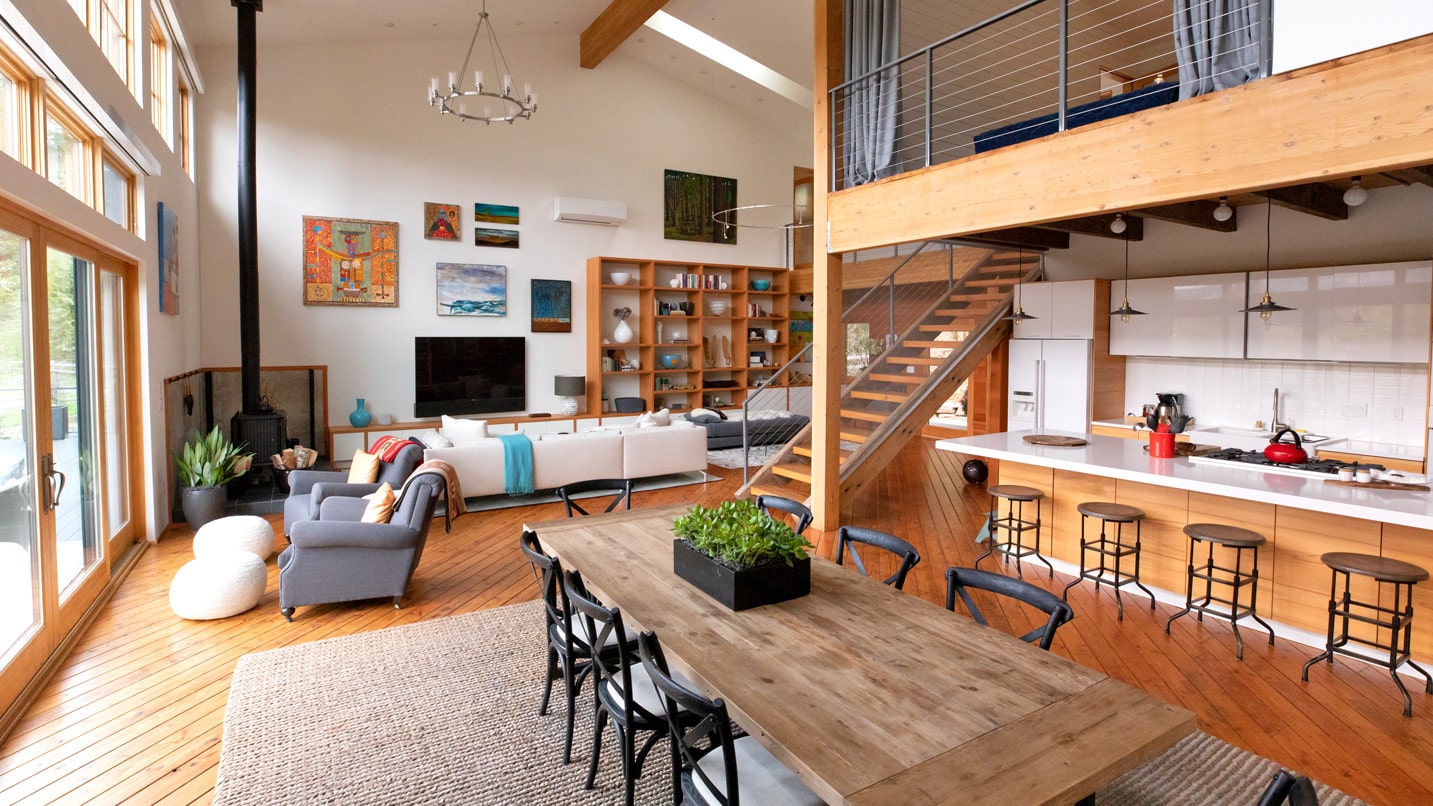
If You Go:
- Tour the farm: Ticketed tours are available for individuals and groups and must be scheduled online ahead of time. Adult tickets are $17 and children (age 10 and under) tickets are $3. Tours run between 45 minutes and an hour.
- Visit the farm stand: Visitors to Tabula Rasa’s farm stand can purchase wines made by nearby vineyards to accompany the farm’s rich, deeply flavorful artisan meats and eggs and browse a variety of high-end local products. The Tabula Rasa Farm Stand is open from 12 p.m. to 5 p.m. Friday, Saturday and Sunday or by appointment.
- Purchase Tabula Rasa’s meat online: Curated boxes of pasture-raised, heritage-breed pork and grass-fed, grass-finished beef are available for purchase online.
- Stay the night: Smola-Foti has converted the home she originally built on the property into an agritourism vacation rental. Book a stay at the Scandinavian-inspired Farmhouse at Tabula Rasa Farms, which has two master suites; a large wraparound deck that overlooks the pastures; a fully equipped kitchen; a wood-fired stove; a nearby permaculture pond; and complimentary coffee, tea, farm-fresh eggs and chef-prepared breakfast sausage.
